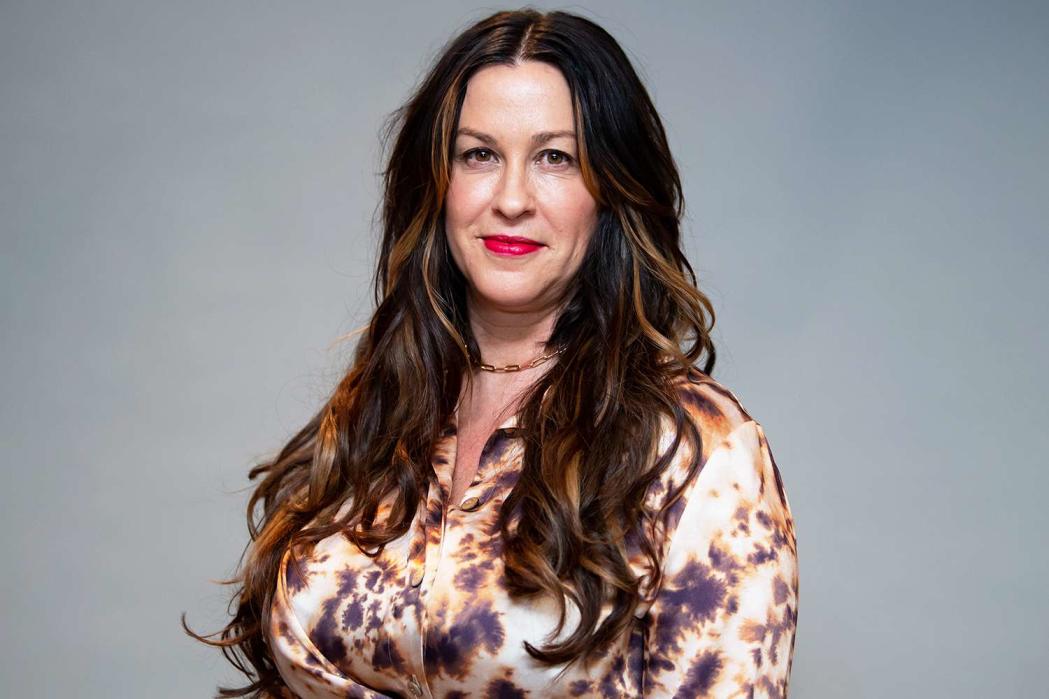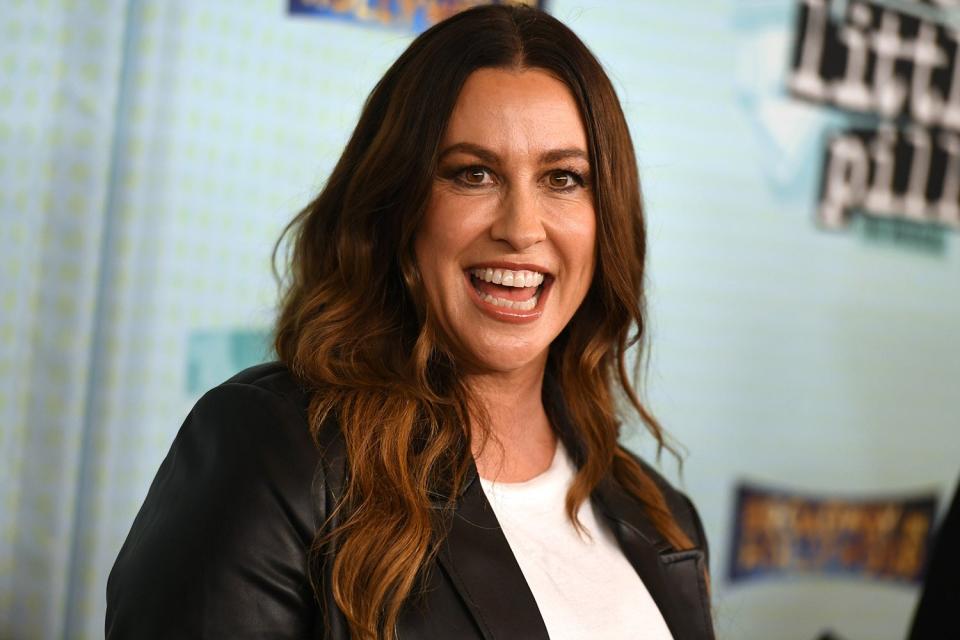Alanis Morissette Is 'Happy' Her Music Gives People 'Permission to Feel All the Stigmatized Feelings'

- Oops!Something went wrong.Please try again later.
Sven Hoppe/dpa/picture alliance via Getty Alanis Morissette
As the theatrical production of "Jagged Little Pill" — built largely around songs of Alanis Morissette's now-iconic, highly influential 1995 album of the same name — opens in Los Angeles, the singer is looking back on what it meant to open the door for women to musically explore — and celebrate — darker, less-discussed subjects, including their own rage.
"I'm happy about the fact that, because I move a certain way on stage or sing a certain lyric, that it gives people permission… to feel all the stigmatized feelings: anger, sadness, depression, anxiety, ambivalence — all of these feelings that we're told not to feel," Morissette told PEOPLE before the musical's premiere at the Hollywood Pantages Theatre.
"I think the word that keeps coming up for me is 'invitation.' I do this as an invitation for people to resonate wherever they do or don't, and permission," the Canadian-born singer, 48, explained. "This musical and this record has always been 'Forget all that for a minute; you're allowed to actually be a human being right now.'"
RELATED: Olivia Rodrigo Set to Induct Alanis Morissette into the Canadian Songwriters Hall of Fame
Only 19 when she first recorded the album, which would become a smash sensation at the time and ultimately one of the best-selling in history, Morissette recalls her initial surprise that other people connected to music that, while she was making, she believed was intensely personal to her, and her alone.
"I felt way, way less alone when people resonated with the record," she says. "I thought, 'Wow — here I am egoically thinking that I'm the only one suffering in this particular way,' and then I came to realize that not only was I not alone, but everybody had some version of validation just by their feeling along with me."

JC Olivera/Getty Alanis Morissette
The effect continues to reverberate all these years later, as subsequent generations discover and embrace Morissette's music through both her discography and the new musical. "The more people who come up to me and tell me they resonate with any of my songs, the more I realize that, no matter what country I'm in, no matter what the skin color, no matter what the politics, that there is a human condition that we all share," she says. "And that really, for me, unites."
Finding that common ground with her listeners also affected Morissette's approach to making music, making certain to invest it with themes and ideas that might have a broader effect on the world. "That's when it changed to activism, in some way, as opposed to just pure self-expression," she explains. "It turned into, 'Well, there's some value in my continuing to share these stories, really.'"
For the Tony- and Grammy-winning theatrical production, following Morissette's preference to avoid a biographical storyline, Juno screenwriter Diablo Cody crafted an original narrative uniting the songs the singer had crafted with producer Glen Ballard, focusing on a contemporary family navigating issues both of-the-moment and evergreen, including addiction, sexual assault, fracturing marriage, romantic betrayal, high-pressure academic performance and repressed trauma.
"I loved it because we fleshed it out and It physicalized it, aestheticized it, in a way," she says of the new context for her music. "It brought things home, it teased certain aspects apart of what is to feel something, to be a complicated human being, and have many parts that feel multitudinously. So that was incredible because it was being embodied, as opposed to it being a concept, an abstract concept, in my head, it was physically right in front of me. The story was unfolding in a really beautiful way that resonated."
RELATED: Dave Coulier Reveals First Thoughts After Hearing Alanis Morissette's 'You Oughta Know'
Indeed, once again, the songs are having a profound effect on the audience, from longtime fans of Morissette's music to musical theater devotees discovering it for the first time, provoking a visceral response in the theater — and one that Morissette herself shares.
"To begin with, I'm a mess, so I'm in the audience, I'm fully enrolled, I'm committed to just being on this ride, so a lot of feelings!" she explains. "I feel wrung out at the end of the show, but during rehearsals and workshopping of this, I was weeping. I couldn't stop — Tom Kitt, the musical director had to come up behind me and push my shoulders down at one of the workshops because I was shaking and I couldn't stop. But I was so engaged that I couldn't stop shaking. So there was something really transformative for me, to actually grok not only that was happening with the record, but with what the record birthed."
"It's pretty heady," she admits. "I don't personally take wild responsibility for it as much as I take responsibility for just showing up."

